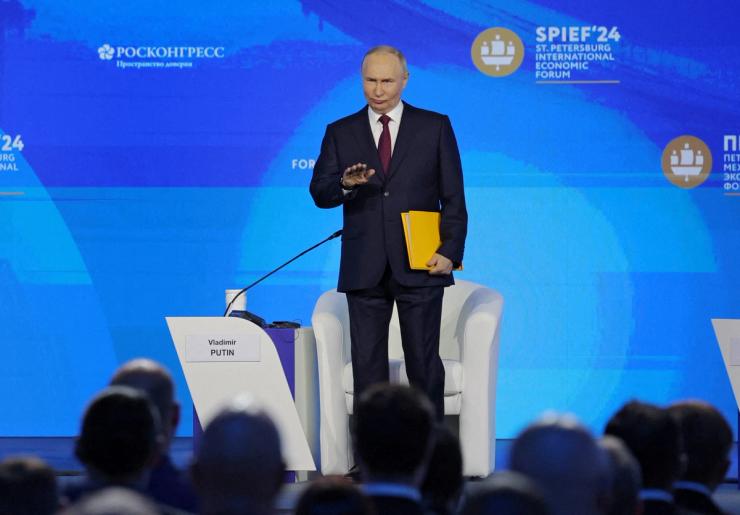The News
Russian President Vladimir Putin will meet with the foreign ministers of the BRICS bloc of developing economies today, as Moscow courts foreign investment to offset Western sanctions.
Analysts say Putin is attempting to build an alternative to the United States-led global power structures, angling to partner with states like China and India to challenge the West.
SIGNALS
Russia developing new avenues of soft power
After being barred from this year’s Eurovision Song Contest and Olympic Games, Moscow is fashioning its own versions of key events. Russia’s Intervision Song Contest, a revamped form of a Soviet-era competition, will feature only Russia’s allies with Western performers banned from participating. The Kremlin is also running a “World Friendship Games” in September. “The message of these cultural and sports events for both Russians and the rest of the world is, simply: We don’t need you any more,” The Wall Street Journal noted.
Putin courts Indian, Chinese investments
At Russia’s recently concluded annual financial summit — the St Petersburg International Economic Forum — Moscow focused on courting investments from partners in the Global South, including India and China. Putin has said that nations friendly to Russia comprise more than three quarters of its trade, despite Western sanctions that have targeted its exports. Specifically, the Kremlin is looking to New Delhi and Beijing to boost high-tech trade and domestic development of tech products as it attempts to cultivate “technological independence,” Nikkei Asia reported.
Moscow is increasingly isolated from the West
Once attended by delegates from the US and the European Union, Russia’s SPIEF event this year hosted notably fewer Western delegates, as business leaders have blacklisted Moscow following its full-scale invasion of Ukraine. The presidents of Bolivia and Zimbabwe were in attendance, as was the Hungarian foreign minister — but “both the level and representation of international participants at the St. Petersburg Forum have significantly declined since the war,” one Russian economist noted to The Moscow Times. The forum’s status has slumped compared to prior years, and even analysts friendly to the Kremlin have observed its decline: SPIEF “has turned into a domestic Russian event,” Russian political analyst Sergei Markov said.



